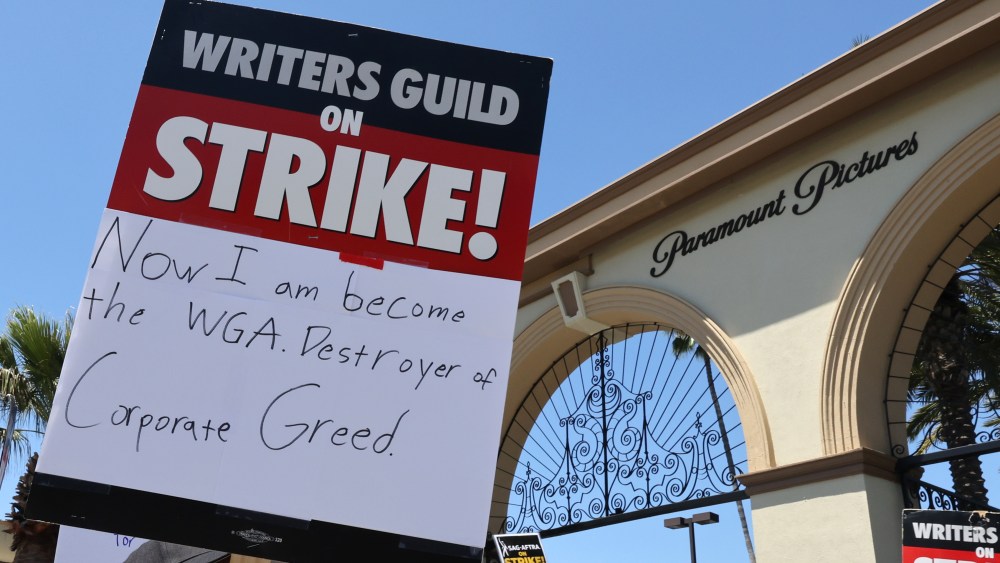
The WGA and Hollywood’s major studios are in the final phase of hammering out a three-year contract that will bring an end to one of the longest strikes in Hollywood history.
Legal representatives for labor and management were said to be huddling on the fine print of language in complicated contract issues such as the use of generative artificial intelligence and groundbreaking elements for the WGA’s minimum basic agreement, such as a formula for a minimum staff guarantee for episodic TV and a “success-based” residual from subscription platforms that is designed to funnel more money into the WGA’s pension and health funds. The nitty gritty details of the terms around the AI proposal has been one of the final hurdles to overcome, multiple sources said.
“It’s mainly down to language now,” one industry insider said.
The negotiations were jumpstarted this week by the presence of four top executives — Disney’s Bob Iger, Warner Bros. Discovery’s David Zaslav, Netflix’s Ted Sarandos and NBCUniversal’s Donna Langley. Those four took part in three days of marathon negotiations that broke the months-long impasse between the WGA and Alliance of Motion Picture and Television Producers, the bargaining unit for the major studios and streamers.
The senior executives were not in the room Saturday but likely monitoring from afar. Insiders familiar with the situation said the approach of the Yom Kippur holiday on Sunday evening became an unofficial deadline target, once it became clear the sides were making real progress earlier this week.
Reps for the AMPTP and WGA did not respond to requests for comment on Saturday. The WGA has been on strike since May 2. Once the WGA deal is wrapped, SAG-AFTRA is waiting in the wings to return to talks and end the first industry-wide strike by the performers guild in more than 40 years. SAG-AFTRA’s work stoppage began July 14.
More to come











